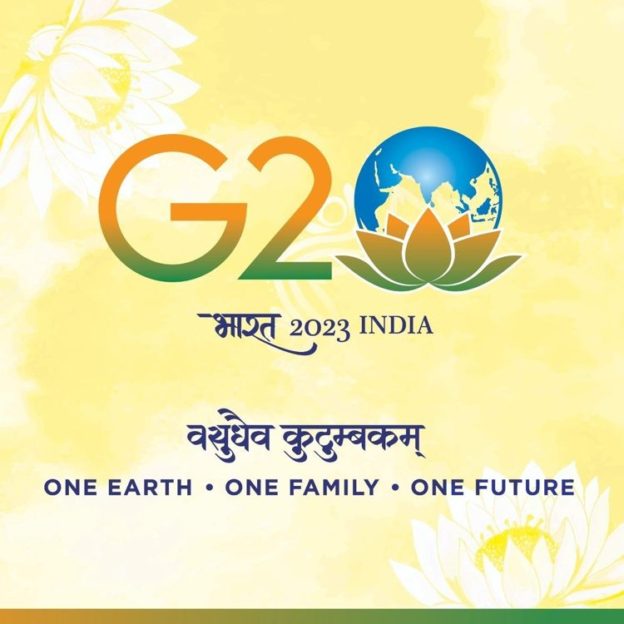Climate change has had a severe impact on agriculture, leading to a decrease in crop yields, food security concerns, and a rise in food prices
The alarming rise in global temperature, as a result of climate change, is one of the most critical issues facing humanity today. The consequences of climate change are multi-dimensional; it has far-reaching implications for agriculture, food security, livelihood, economic and demographic costs, and much more. According to NASA, the average global temperature has increased by about 0.8°C (1.4°F) since 1880. The majority of the warming occurred in the last 40 years, with the 20 warmest years having occurred since 1981 and with all 10 of the warmest years occurring in the past 12 years.
Climate change has had a severe impact on agriculture, leading to a decrease in crop yields, food security concerns, and a rise in food prices.
Given the urgency of the threat, collective global action has become a necessity. The G20, comprising the world’s 20 most powerful nations, has the combined resources to set the global agenda towards ensuring progress on climate change. The G20 represents around 80% of the world’s economic output, two-thirds of the global population, and more than half of the world’s land area. As such, the G20 has the potential to create a significant impact on global efforts to address climate change.
India is a global leader in terms of renewable energy (RE) capacity, with a total installed capacity of 174.53 GW, including hydro-electric projects as of February 2023. India has also led movements such as the Leadership for Energy Access Partnership (LEAP) and the International Solar Alliance (ISA), which have aimed to increase the use of renewable energy globally. However, renewable energy is not enough to reduce carbon emissions at the rate needed to achieve global goals. Most of the RE sources such as wind, solar, and hydro are unreliable, restrictive to specific geographic conditions, and have limitations in terms of scaling up. Therefore, there is a need for a reliable and scalable base-load energy source that can reduce carbon emissions while ensuring energy security.
Nuclear energy is the only option that can meet the demand for reliable and scalable energy while reducing carbon emissions. Nuclear power is a proven technology that has been used for more than 60 years. Nuclear power plants have a small environmental footprint, and their waste is safely managed. India has been actively pursuing nuclear energy as part of its energy mix. It has 22 nuclear reactors in operation, with a total installed capacity of 6.7 GW. India has also introduced a program to develop small modular reactors (SMRs) to address the geographic limitations of nuclear power plants. SMRs are a new generation of nuclear reactors that are smaller in size and more flexible, making them suitable for use in remote locations or areas with limited access to the grid.
Nuclear power plants have a high capacity factor, which means they can operate at near-full capacity for extended periods of time. According to the World Nuclear Association, the average capacity factor for nuclear power plants worldwide was 80.2% in 2020. This is significantly higher than the capacity factor for wind and solar, which are highly variable and often operate at a fraction of their rated capacity. Smaller-scale modular reactors are being developed and deployed by global agencies such as Rosatom, managing 75% of global nuclear technology exports, in countries such as China, India, Brazil, and South Africa, in addition to smaller nations such as Bulgaria, Czech Republic, Finland, and Hungary. These small modular reactors (SMRs) have the potential to provide scalable, low-carbon energy to remote and off-grid communities, as well as supplement existing power grids with reliable, zero-carbon energy.
According to a report by the Intergovernmental Panel on Climate Change (IPCC), nuclear energy is a key technology for achieving deep decarbonization of the energy sector. The report states that to limit global warming to 1.5°C above pre-industrial levels, nuclear energy must provide between 2% and 22% of the world’s total energy supply by 2050.
Instead of installing large reactors and inviting a capital cost of around billions USD, a twin SMR with a power output capacity of 100MW each with costs of around few hundred million USD would suffice.
Nuclear energy is a proven and reliable source of energy that can reduce carbon emissions while ensuring energy security. It is also scalable and has relatively few geographic limitations, which can be addressed through introducing SMRs. The G20 has a unique opportunity to set an example for the rest of the world by promoting the use of nuclear energy to effectively work on de-carbonization.
With the far-reaching adverse effects of climate change, the urgency to address these consequences cannot be overstated. As the President of the G20 this year, India has an excellent opportunity to set a concrete action plan towards addressing climate change. The G20, with its combined resources and power, can set the global agenda and ensure progress towards reducing carbon emissions and mitigating the impact of climate change. By promoting the use of nuclear energy and introducing new technologies such as SMRs, the G20 can lead the way in finding effective solutions to address climate change.
At G20, India is expected to come up with a solution to the present dilemma of achieving ‘Net-zero emission’ targets by 2070 without compromising energy security. It is important that a proven, scalable green energy sources should be prioritized to achieve these goals rather than squandering resources on chasing a ‘miracle cure’. The G20 has a unique opportunity to make a difference by promoting the use of nuclear energy as part of the global energy mix. By doing so, the G20 can set an example for the rest of the world and ensure a sustainable future for generations to come.
https://www.financialexpress.com/business/defence/g20-summit-indias-presidency-and-the-nuclear-energy-solution/3092607/





